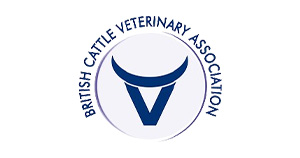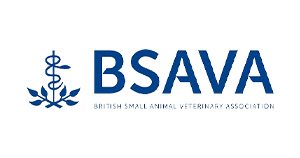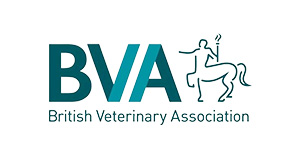100th Keyhole Spay Surgery! Benefits & Recovery of Laparoscopic Spaying
100 up!
Published on: Mar 23, 2018
Veterinary medicine is an ever-developing world and, as a practising vet, it is important that I keep up to date with advancements in our knowledge. In fact, continuing professional development is not only a strict requirement, regulated by the Royal College of Veterinary Surgeons, but is an enjoyable and rewarding part of the profession. My regular returns to the classroom, ‘webinars’ and catch ups with the veterinary journals reassure me that I am keeping pace with current knowledge and providing my patients with a high standard of clinical care.
Most often, our learning focusses on management of complex medical or surgical conditions, while the more ‘routine’ parts of the job continue day-to-day. For example, the fundamental techniques of routine neutering surgery in general practice have remained fairly unchanged for most of my 16 years in practice. In recent years however, specialists have been recommending a newer technique for our routine bitch spays, and so it was that, in 2016, I visited a referral practice in Bristol to learn how to perform a laparoscopic bitch spay.
A laparoscopic spay, otherwise known as a ‘keyhole’ spay, is considered a less intrusive method of neutering for female dogs, and has a quicker recovery time. Of course, routine neutering is an important part of our job, with benefits for pet welfare and population control. However, particularly for bitches, it is important to remember that this is still a significant surgery, with the traditional method being very similar to a hysterectomy in humans.
The keyhole technique allows vets to perform this major surgical procedure through just 3 small incisions, totalling only 2cm of surgical wounds. This provides good visibility to the abdomen which allows us to pass surgical instruments directly to each ovary. This avoids any unnecessary stretching or pulling internally and, with high tech electrocautery instruments, the ovaries are removed in a safe, quick and minimally painful way.
This type of surgery is more expensive than the traditional approach, as it requires specific equipment and an extra surgical assistant, but many pet owners consider this is a small price to pay for the additional benefits and it is increasingly offered by veterinary practices across the country.
We introduced the keyhole spay to our practice in October 2016 and the benefits of the technique were very soon evident to both the practice team and owners. Patients are quickly up and on their feet, often within minutes of recovery from the anaesthetic, and owners tell us that they are brighter when they go home than other pets after the older technique. In fact, owners tell us that it can be difficult to keep their dogs quiet and rested, as they seem to want to resume normal activities immediately!
Last month we hit a very exciting milestone here in the practice, as we have now performed over 100 keyhole bitch spays! Our 100th patient was Teal, a 1 ½ year old Springer Spaniel. Teal is a working Springer Spaniel, so she is very active and full of energy all the time. Her owners were very keen to choose a surgery option that would be less intrusive and provide a quicker recovery time. She and her owner were kind enough to pose for a photo to celebrate the event, and as you can see, Teal is looking very happy in the photo despite having a major operation just a couple of days before!
We are now seeing the keyhole spay becoming the more popular choice, and more and more veterinary practices are offering this surgery for their patients.
Learning something new is always exciting, even more so when we can really put our new knowledge to good use. Neutering may be ‘every-day’, but this was a great example of how rewarding it is to keep our knowledge current. And it seems you can teach an old dog new tricks!
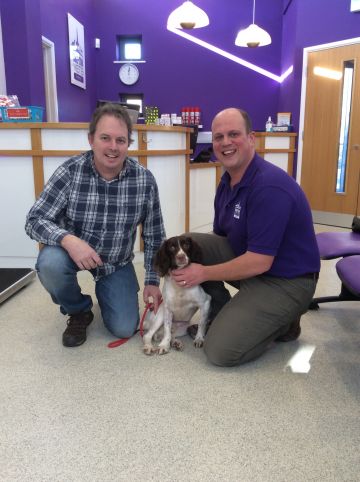

Author –
Martin Law
Shepton Vets celebrates 100th keyhole spay! Learn about laparoscopic spaying (keyhole spay) for dogs, its benefits & faster recovery time.
chronic kidney disease in cats | cat kidney disease | senior cat care | CKD symptoms in cats | vet care for CKD | cat kidney failure | kidney problems in cats | cat drinking a lot | weight loss in cats | cat blood test | cat urine test | cat food for kidney disease |
More Articles from Martin
Caring for your pet as we do our own
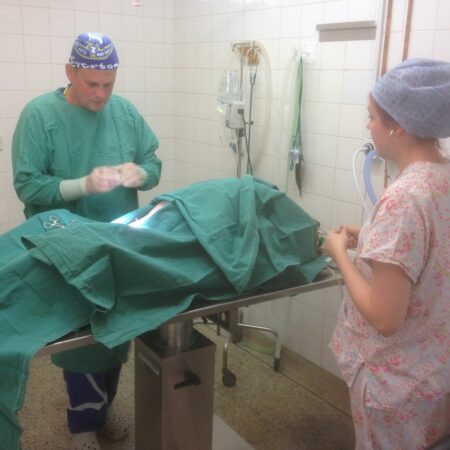
At Shepton and Wells Vets, we understand what your pets mean to you, and so our Pets team aim to care for each and every one of them as we would do our own.
We care about your pet
Our primary focus is keeping them fit, happy and healthy with comprehensive and effective preventative healthcare, advice and treatment.
We care about you
We aim to communicate clearly and honestly with you, and discuss different treatment options so that you can make the right informed choices for you and your pet.
We care about clinical excellence
We take pride in providing a high level of medical and surgical care, working together as a team to do the very best we can for your pet.






